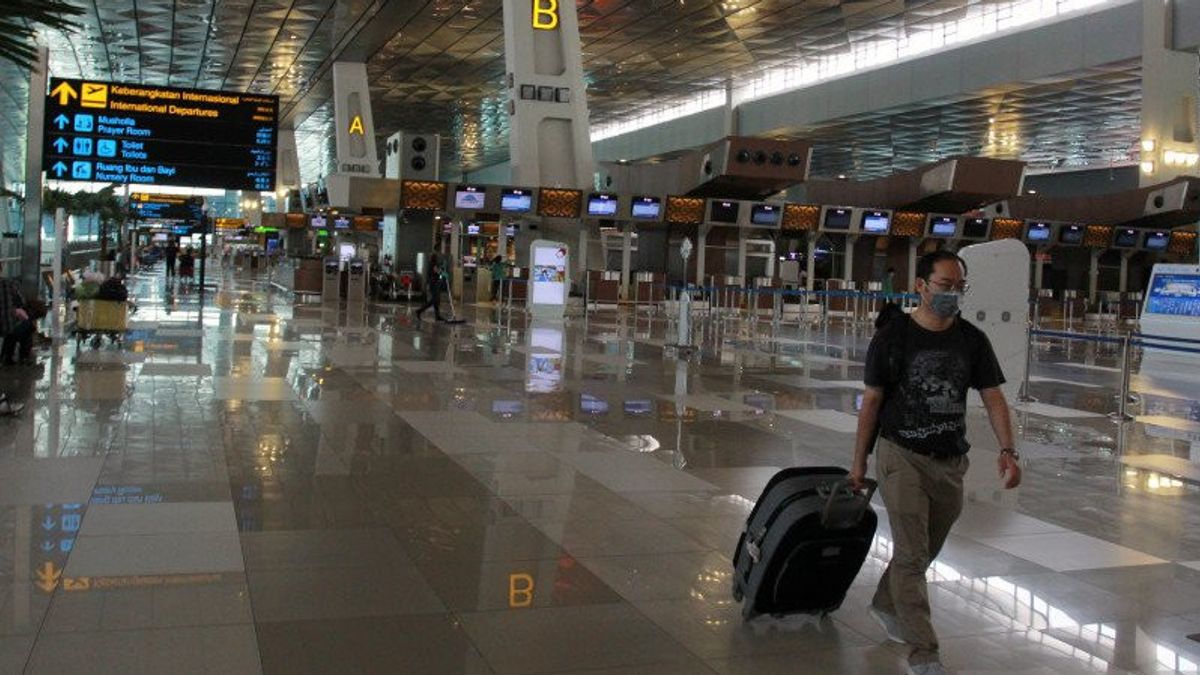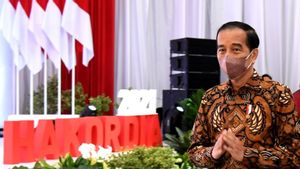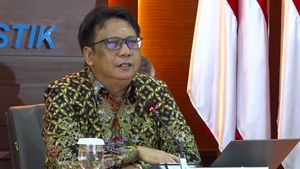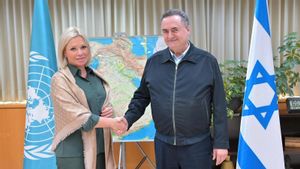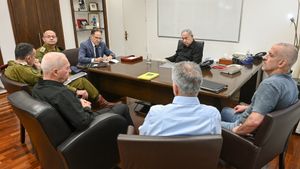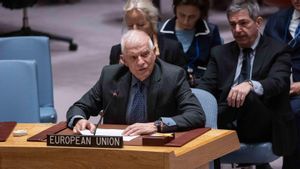JAKARTA - The COVID-19 Handling Task Force (Satgas) conveyed that the exclusion of quarantine obligations for international travelers, both foreigners, and Indonesian citizens, was limited.
The National Spokesperson for the COVID-19 Handling Task Force Wiku Adi Sasmito said the COVID-19 Task Force had issued a COVID-19 Task Force Circular No. 25/2021 concerning International Travel Health Protocols during the COVID-19 Pandemic which stipulates quarantine obligations for Indonesian citizens and foreigners from abroad. country.
Exceptions to quarantine obligations only apply to foreigners with the criteria for diplomatic and service visa holders, foreign officials and entourages making state visits, delegates from G-20 member countries, TCA scheme.
"Exemptions from the quarantine obligations of Indonesian citizens in urgent circumstances, such as having a life-threatening health condition that requires special attention, as well as conditions of mourning, such as a nuclear family member, dies," said Wiku, quoted by Antara, Wednesday, December 15.
This provision, he continued, replaces circular letter No. 23/2021 which requires every international traveler to carry out an RT-PCR test upon arrival, a 10 x 24-hour quarantine, and a second RT-PCR retest on the 9th day of quarantine.
It was conveyed, Indonesian citizens from 11 countries where community transmission of the Omicron variant were required to undergo a 14-day quarantine.
Wiku added that the determination of quarantine locations in the Jakarta area was divided into two schemes. First, Indonesian citizens (PMI, students who have completed their studies abroad, ASN who are traveling on assignment) are conducted at Wisma Pademangan, Wisma Atlet Kemayoran, Rusun Pasar Rumput, and Rusun Nagrak.
Second, the quarantine of travelers at their own expense is carried out in more than 105 hotels that have obtained CHSE status and based on the recommendations of the COVID-19 Task Force.
SEE ALSO:
Wiku added that the provisions for dispensation to reduce the duration of quarantine and/or implementation of self-quarantine at their respective residences can be given to Indonesian citizens of echelon I level and above who return from official trips abroad.
"Officials who are not on official trips abroad and return to Indonesia cannot apply for a dispensation to reduce the duration of quarantine or apply for self-quarantine and must carry out centralized quarantine at the hotel. Groups that accompany official needs must carry out centralized quarantine," said Wiku.
According to Wiku, these exceptions and dispensations only apply to individuals and must be submitted at least three days before arrival in Indonesia to the COVID-19 Task Force and based on the evaluation of the relevant ministries/agencies.
This provision is in line with the statement of the Head of the COVID-19 Handling Task Force, Lieutenant General TNI Suharyanto at a hearing with the House of Representatives, Monday, December 13, and is further regulated in more detail in a circular letter.
Supervision
Wiku emphasized that surveillance will still be carried out when Indonesian citizens undergo self-quarantine. "We provide a number of strict conditions, such as the obligation to report RT-PCR results on the 9th day of quarantine and ensure that supervision continues until the end of the quarantine period," he said.
Therefore, said Wiku, any violators of the self-quarantine provisions will be dealt with firmly. For example, by returning to a centralized quarantine area.
"If they are still uncooperative, sanctions will apply as stipulated in Article 14 of the Infectious Disease Outbreak Law and Article 93 of the Health Quarantine Law," he said.
Wiku assessed that the handling and control of COVID-19 in Indonesia have continued to improve and have consistently been at a low level of transmission for more than 150 days.
According to him, this cannot be separated from the ongoing updating and relaxation of policies to get the best efforts to protect all elements of society from exposure to SARS-CoV-2 which naturally moves dynamically.
"The COVID-19 quarantine is an effort to separate someone who has a history of contact with a positive case or a history of traveling to areas where community transmission has occurred with special procedures. Therefore, this policy is the key to preventing the importation of cases that must be fully complied with by all levels of society. discipline," said Wiku.
According to Wiku, the implementation of a good layered policy with quarantine and testing plays an important role in controlling the COVID-19 condition in Indonesia.
"It is proven by the low addition of cases and the absence of the Omicron variant," he said.
In principle, said Wiku, the policy will be effective if the implementation in the field is also good, and is very dependent on the obedience of each individual who can be an example for those around him.
Therefore, the government is currently continuing to improve the organization and management of the task force for international travelers.
"In fact, every individual Indonesian citizen is responsible for the condition of the COVID-19 case in Indonesia. Moreover, individuals who due to their situation and condition are allowed to self-quarantine. Be a good example for fellow Indonesians," said Wiku.
The English, Chinese, Japanese, Arabic, and French versions are automatically generated by the AI. So there may still be inaccuracies in translating, please always see Indonesian as our main language. (system supported by DigitalSiber.id)
